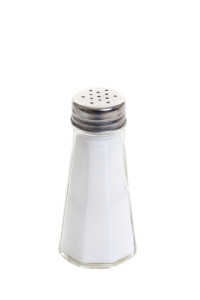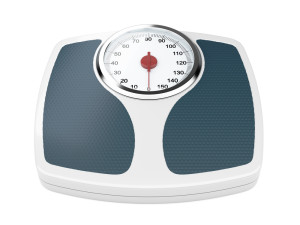Let’s Talk About Diuretics (Medicines That Make Your Kidneys Produce More Urine).
One of the major problems in PAH is that patients retain fluid. That means that all of the salt and fluids you drink are not adequately eliminated by your kidneys. Normally the body has a meticulous balance between salt and water in and urine out. With PAH, the heart sends hormonal signals to the kidneys to retain salt and water. The net effect is that over time salt and water accumulate and edema or swelling in the legs and abdomen develops.  Unfortunately as this process gets worse the heart has a harder time pumping blood and there is an even greater signal sent to the kidneys to retain fluid and salt. This feed forward cycle leads to symptomatic right heart failure. When you visit your doctor and the doctor checks your ankles, pushes on your stomach and inspects your neck veins, we are looking for signs of fluid retention.
Unfortunately as this process gets worse the heart has a harder time pumping blood and there is an even greater signal sent to the kidneys to retain fluid and salt. This feed forward cycle leads to symptomatic right heart failure. When you visit your doctor and the doctor checks your ankles, pushes on your stomach and inspects your neck veins, we are looking for signs of fluid retention.
The solution to this cycle of fluid retention is diuretic therapy and salt and fluid limitation. We will talk about salt and fluid limitation another time. For now we will focus on diuretics.
4 Families of Diuretics Used for PAH Patients
There are 4 main families of diuretics (see chart below)
| Brand Name | Generic Name | Type | Usual Dose Range | Comments |
| Lasix | Furosemide | Loop | 20-80mg 1-2x per day | Most common |
| Bumex | Bumetidine | Loop | 1-4mg 1-2x per day | Most potent |
| Demedex | Torsemide | Loop | 20-40mg 1-2x per day | Most expensive |
| HCTZ | Thiazide | 25mg once daily | Watch for low potassium when combined with loop | |
| Zaroxylyn | Metolazone | Thiazide | 5-10mg 1-2x per week | Watch for low potassium when combined with loop |
| Aldactone | Spironolactone | K-spairing | 25-50mg 1-2x per day | Prevents low potassium |
| Amiloride | K-spairing | 5-10mg once daily | Prevents low potassium | |
| Inspra | Epleronone | K-spairing | 25-50mg 1-2 x per day | Prevents low potassium |
| Diamox | Acetazolamide | Carbonic Anhydrase Inhibitor | 250-500mg once daily | Use with caution |
The loop diuretics are the most powerful and serve as the backbone of the regimen. The major problem is that low potassium levels can result due to loss of potassium in the urine. The solution is either potassium chloride (KCL) replacement or the concurrent use of a potassium spairing diuretic (K-spairing). The combination of a loop and a K-spairing diuretic results in improved efficacy and reduced need for potassium replacement. Potassium tablets can be a challenge to take as the 20meq tablet is quite large. The thiazide diuretics are often used as a “turbo chargers” to boost the effect of loop diuretics. I generally only use these once or twice a week to avoid low potassium levels.
Over time, the kidneys may grow accustomed to the diuretic regimen and a higher dose may be needed. Also as PAH gets worse the heart pumps less blood and higher doses of diuretics are required to achieve the same effect.
When we prescribe diuretics, we are always concerned about monitoring kidney function and electrolyte balance—especially potassium levels. My practice is to check a kidney panel (also called a BMP or chem 7) about a week after starting or changing diuretics. This allows us to be sure that the blood chemistry is satisfactory.
Why am I Retaining Fluid?
There are a few common reasons that patients retain fluid.
- Increased salt or fluids in the diet. This may come from eating in restaurants or consuming foods that are high in salt (such as canned soups, olives, pickles, cheese, cold cuts to name just a few). Increase water/fluid intake causes the same problem.
- Use of NSAIDS (these are pain meds such as motrin, aleve, ibuprofen, naproxen, meloxicam). These medications decrease the ability of the kidney to function properly.
- Not taking diuretics. This is pretty straight forward. If you skip your diuretics, your kidneys will not be able to remove the required amount of salt and water.
- New heart rhythm problems such as atrial fibrillation or atrial flutter. This common heart rhythm problem results in reduced heart function.
- Progressive pulmonary hypertension causes your heart to pump less effectively. As the kidneys see less blood flow they are less able to make adequate urine.
The Mighty Scale
 A simple scale in your bathroom provides you and your doctor with very valuable information. You should weigh yourself every morning at the same time. Even a 2-3 pound increase in your weight is important and should prompt you to call your PAH team. If you call my team, you will be instructed on how to safely increase your diuretics for a day or two and to buckle down on a low salt/fluid restricted diet. If you gain 5 pounds, this is an even bigger problem. We will usually advise you to increase your diuretics for 3 days and if your weight does not improve we will want to see you in the office. Each doctor has their own strategy. The key point is that small increases in your weight are a very important warning sign that you need to talk with your team. DO NOT CHANGE YOUR MEDICATION REGIMEN WITHOUT SPEAKING TO YOUR HEALTHCARE PROVIDER.
A simple scale in your bathroom provides you and your doctor with very valuable information. You should weigh yourself every morning at the same time. Even a 2-3 pound increase in your weight is important and should prompt you to call your PAH team. If you call my team, you will be instructed on how to safely increase your diuretics for a day or two and to buckle down on a low salt/fluid restricted diet. If you gain 5 pounds, this is an even bigger problem. We will usually advise you to increase your diuretics for 3 days and if your weight does not improve we will want to see you in the office. Each doctor has their own strategy. The key point is that small increases in your weight are a very important warning sign that you need to talk with your team. DO NOT CHANGE YOUR MEDICATION REGIMEN WITHOUT SPEAKING TO YOUR HEALTHCARE PROVIDER.
